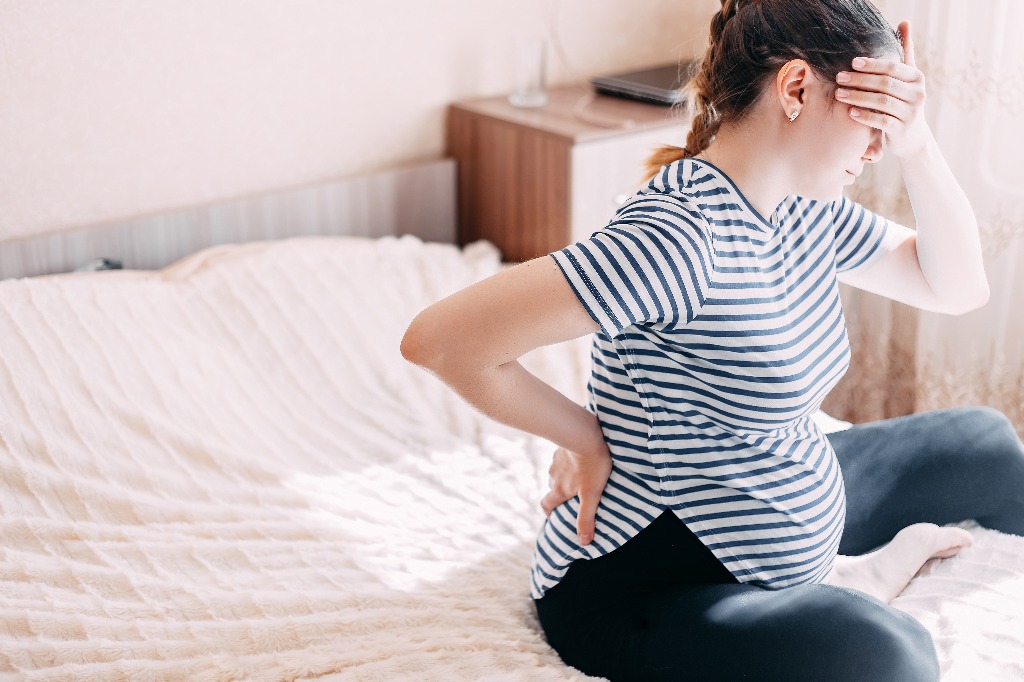What to Do When You’re Pregnant and Have Morning Sickness
Being sick is difficult for anyone, but when you’re pregnant and sick, it presents a whole new series of challenges. Roughly 70 percent of pregnant women experience some type of morning sickness which makes it hard to complete tasks of everyday life.
Morning sickness doesn’t necessarily occur in the morning; it can be experienced at any time or, in certain cases, it may last throughout the day.
We understand, and that’s why we want to provide this useful guideline on what to do when you’re pregnant and sick.
What Will Help With Morning Sickness During Pregnancy?
Before taking a medication or an over-the-counter product for morning sickness, we encourage you to first try to find relief by any of the following methods:
- Keep crackers by your bedside and eat a few of them in the morning—you may even want to eat a few before you get out of bed. These will help settle your stomach.
- Avoid large meals and consider having five or six small meals a day instead of three larger ones.
- Don’t eat spicy or fatty foods. Bland foods are a much better choice and will help settle your stomach. You can always nibble on dry toast, bananas or even a plain baked potato.
- Stay hydrated and drink plenty of water.
- When you take your prenatal vitamins, do so with a snack. Talk to us if you need more information about what vitamins you should be taking and the best way to take them.
- Avoid strong odors.
- Flickering lights have been known to sometimes trigger nausea.
- Learn what causes or triggers your nausea so you can avoid it.
- Be sure you are in well-ventilated rooms.
Can I Take Anything for Morning Sickness While Pregnant?
Yes, you can, although it’s important to work with us first so we can find a safe and effective solution together.
If the strategies above have not been successful, you may wish to try vitamin B6 and doxylamine, which can be useful. Doxylamine is often used to treat hay fever and promote sleep.
What Causes Pregnancy Nausea?
Research is ongoing into the exact cause of morning sickness, but many scientists believe that the hormonal changes that center around pregnancy are a major factor.
There are also some women who are more likely to develop morning sickness than others. This includes:
- Those who are more prone to motion sickness or migraines before they got pregnant.
- Those who have had previous morning sickness during an earlier pregnancy.
- Those who are carrying twins or are planning multiple births.
- Those who have a family history of morning sickness.
- Those who are carrying a girl.
- Women who have experienced nausea when exposed to estrogen before pregnancy are more likely to develop morning sickness
How Soon Can You Get Morning Sickness?
There is no one answer for everyone—each woman’s pregnancy is different. Some have it only at the beginning of the pregnancy while others may have it off and on throughout nine months. However, it is most common when you are in your first trimester.
Typically, those with morning sickness will start to experience it nine weeks after the baby is conceived. For most women, the symptoms improve by the mid to late second trimester.
Associates in Women’s Healthcare Works With You to Stay Healthy Throughout Your Pregnancy
When it comes to your health while you’re expecting, we believe the key is to have a proactive approach.
We also encourage pregnant women to get a flu shot and other important vaccinations. to safeguard their health.
We understand that this is a lot of information to sort through and process. We also know that there is a lot of misinformation that is easily available on the internet.
That’s why we encourage you to talk to us so we can give you reliable, concrete answers to your questions of what to do when you’re sick and pregnant.
Contact us today to schedule an appointment.





